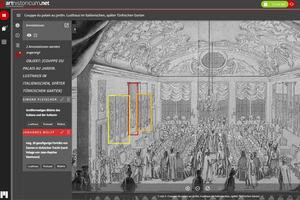Registry for Tools & Services
The NFDI4Culture Registry collects metadata about existing research tools and data services, and provides a simple overview and detailed information about the resources.

Archive shelves
"The picture shows archive shelves with file folders and documents." Creator: Pexels
Keywords
Of particular interest to the Culture Community, the NFDI4Culture Registry service collects metadata about existing research tools and data services, and provides a simple overview and detailed information about the resources.
In addition, the Registry enables researchers to access these resources in order to promote the re-use and further development of existing tools and services. All metadata included will be published under an open licence, and all tools and services will be given a unique identifier to enable referencing. Software and service reviews will also be included to assess, promote and highlight the reliability of research tools and data services against the FAIR principles.
In the future, the community itself will also be able to create research software and data services directly via this portal.
Use Cases
Use Case #1 Register existing digital research tools and data services
Context: The scientific community, in particular the disciplines represented in the NFDI4Culture consortium.

User groups:
- Research software engineers
- Data managers
- Scholars
Key requirements:
- Register existing research tools
- Register existing data services
Use Case #2 Finding and (re)using digital research tools and data services
Context: The scientific community, in particular the disciplines represented in the NFDI4Culture consortium.

User groups:
- Scholars
- Research software engineers and data managers
Key requirements:
- Find existing digital research tools and data services
- Reuse existing digital research tools and data services
Service Architecture
Software Stack:
- TYPO3 Extension (Extbase)
Contact
Contact Person:
Dr.
Lisa
Dieckmann
Contact Person:
Dipl. Wirt.-Inf.
Daniel
Röwenstrunk
Contact Person:
Sven
Peter, M. A., M. Sc.
Contact Person:
Anastasia
Wawilow, M. Sc.





